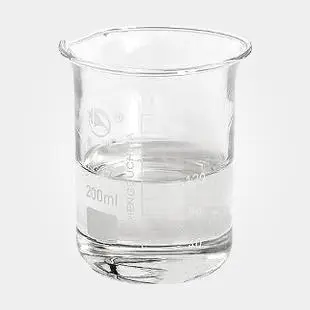ไอโซโพรพานอลและเอทานอลต่างก็เป็นแอลกอฮอล์ แต่คุณสมบัติที่แตกต่างกันอย่างมีนัยสำคัญทำให้เหมาะสำหรับการใช้งานที่แตกต่างกัน ในบทความนี้ เราจะสำรวจเหตุผลที่ใช้ไอโซโพรพานอลแทนเอทานอลในสถานการณ์ต่างๆ
ไอโซโพรพานอล หรือที่รู้จักกันในชื่อ 2-โพรพานอล เป็นของเหลวข้นหนืดไม่มีสี มีกลิ่นหวานเล็กน้อย สามารถผสมกับน้ำและตัวทำละลายอินทรีย์ส่วนใหญ่ได้ ไอโซโพรพานอลมักใช้เป็นตัวทำละลายในปฏิกิริยาเคมีต่างๆ และเป็นสารทำความสะอาดเครื่องยนต์และอุปกรณ์อุตสาหกรรมอื่นๆ
ในทางกลับกัน เอทานอลก็เป็นแอลกอฮอล์เช่นกัน แต่มีโครงสร้างที่แตกต่างออกไป โดยทั่วไปมักใช้เป็นตัวทำละลายและสารฆ่าเชื้อ แต่คุณสมบัติของเอทานอลทำให้ไม่เหมาะกับการใช้งานบางประเภท
มาดูเหตุผลบางประการว่าทำไมไอโซโพรพานอลจึงได้รับความนิยมมากกว่าเอธานอลกัน:
1. พลังตัวทำละลาย: ไอโซโพรพานอลมีพลังตัวทำละลายสูงกว่าเอทานอล สามารถละลายสารได้หลากหลายชนิด จึงเหมาะสำหรับใช้ในปฏิกิริยาเคมีต่างๆ ที่จำเป็นต้องละลายได้ พลังตัวทำละลายของเอทานอลค่อนข้างอ่อนกว่า ทำให้มีข้อจำกัดในการใช้งานในปฏิกิริยาเคมีบางประเภท
2. จุดเดือด: ไอโซโพรพานอลมีจุดเดือดสูงกว่าเอทานอล ซึ่งหมายความว่าสามารถใช้งานได้ที่อุณหภูมิสูงกว่าโดยไม่ระเหยง่าย จึงเหมาะสำหรับการใช้งานในอุตสาหกรรมที่ต้องการความทนทานต่อความร้อน เช่น การทำความสะอาดเครื่องยนต์และเครื่องจักรอื่นๆ
3. ความสามารถในการผสมตัวทำละลาย: ไอโซโพรพานอลสามารถผสมกับน้ำและตัวทำละลายอินทรีย์ส่วนใหญ่ได้ดีกว่าเมื่อเทียบกับเอทานอล ทำให้สามารถนำไปใช้ในส่วนผสมและสูตรผสมต่างๆ ได้ง่ายขึ้นโดยไม่ทำให้เกิดการแยกเฟสหรือการตกตะกอน ในทางกลับกัน เอทานอลมีแนวโน้มที่จะแยกตัวออกจากน้ำที่ความเข้มข้นสูง ทำให้ไม่เหมาะกับส่วนผสมบางชนิด
4. ความสามารถในการย่อยสลายทางชีวภาพ: ทั้งไอโซโพรพานอลและเอทานอลสามารถย่อยสลายได้ทางชีวภาพ แต่ไอโซโพรพานอลมีอัตราการย่อยสลายทางชีวภาพที่สูงกว่า ซึ่งหมายความว่าไอโซโพรพานอลจะย่อยสลายในสิ่งแวดล้อมได้เร็วกว่า จึงลดผลกระทบที่อาจเกิดขึ้นต่อสิ่งแวดล้อมเมื่อเทียบกับเอทานอล
5. ข้อควรพิจารณาด้านความปลอดภัย: ไอโซโพรพานอลมีขีดจำกัดการติดไฟต่ำกว่าเมื่อเทียบกับเอทานอล ทำให้ปลอดภัยกว่าในการจัดการและขนส่ง นอกจากนี้ยังมีความเป็นพิษต่ำกว่า ซึ่งช่วยลดความเสี่ยงต่อการสัมผัสสารกับผู้ปฏิบัติงานและสิ่งแวดล้อม เอทานอลแม้จะมีความเป็นพิษน้อยกว่าตัวทำละลายอื่นๆ แต่ก็มีขีดจำกัดการติดไฟที่สูงกว่า และควรใช้ด้วยความระมัดระวัง
สรุปแล้ว การเลือกใช้ไอโซโพรพานอลและเอทานอลขึ้นอยู่กับการใช้งานและข้อกำหนดเฉพาะ ไอโซโพรพานอลมีพลังตัวทำละลายที่สูงกว่า จุดเดือดที่สูงกว่า ความสามารถในการผสมกับน้ำและตัวทำละลายอินทรีย์ได้ดีกว่า อัตราการย่อยสลายทางชีวภาพที่สูงขึ้น และคุณสมบัติในการจัดการที่ปลอดภัยกว่า ทำให้ไอโซโพรพานอลเป็นแอลกอฮอล์ที่ใช้งานได้หลากหลายและเป็นที่นิยมสำหรับการใช้งานทางอุตสาหกรรมและเชิงพาณิชย์มากกว่าเอทานอล
เวลาโพสต์: 05 ม.ค. 2567





